MAY 2023 - Blues Vol 39 No. 5
- Text
- Police jobs
- Police war stories
- Police news
- Blues police magazine
- School shooting
- National bank shooting
- Police heroes
- Largest police magazine
- Wwwbluespdmagcom
- Breidenbach
- Heroes
- Shootings
- Firearms
- Enforcement
- Blues
DARYL LOTT daryl’s
DARYL LOTT daryl’s deliberations yrs. Memorial Day 2023 I’ve always considered Abraham Lincoln the ceremonial last casualty of the Civil War. The burden he carried throughout the war was unmatched by any other president before or since. Many believe he was our greatest president, but I ultimately bestow that honor on Washington because he was the “Father of Our Country” in every respect. Lincoln is a very, very close second. Lincoln’s assassination was a bitter blow to the country. So much so, that it overshadowed what I consider to be the last casualties of the Civil War. The Civil War was the foremost catastrophe to ever land on our continent. The warriors used modern weaponry and Napoleonic tactics to mow down an entire generation of Americans. No family escaped the effects of the war. Diseases fermented in a land where germ theory and the actual causes of afflictions like Cholera and dysentery were unknown. Simple scratches resulted in lost limbs or lives due to infection. The four pillars of public health (clean water, sanitary sewers, antibiotics, and vaccines) were all sorely lacking or nonexistent in our country. Most times, the young men who comprised the legions that marched through the South on both sides of the conflict had never seen so many men in one place at one time. Towns built for hundreds suddenly housed tens of thousands with predictable results to any 21st Century reader. Corinth, Mississippi was such a place. It was a small town with a rail junction. It had no paved or stone roads, shelter from torrential rains, or any other means to support a gathering of any size. Corinth soon became a death trap for any army guarding the vital railroad that connected the western confederacy with the Gulf of Mexico and the Atlantic Ocean. As malignant as Corinth was, it did not hold a candle to the prison camps of both sides. Initially, there were huge prisoner exchanges because neither side could maintain camps without staggering death tolls. Places with names such as Andersonville and Camp Douglass became synonymous with death by disease. The guards were also susceptible to the onslaught of merciless pestilence with many of them dying inside the wire. Despite the success of the prisoner exchanges, General Grant believed the prisoner exchange concept was benefiting the South disproportionately. In his bloody calculus, he saw that the South could not produce more soldiers than the North due to the huge population disparity. Therefore, he consigned the unfortunate prisoners of both sides to fates worse than battlefield death behind the wires of filth and contamination. In his defense, Grant believed that his no-exchange policy would shorten the war and save lives in the long term. The war ended with the feared monstrous loss of prisoners’ lives. Scenes of camp liberators encountering gruesome prison camps would haunt the nation’s memory in nightmares without end. Desperate families, North and South, longed to get their husbands, brothers, and sons back home. One such case of repatriation of Northern soldiers and former prisoners of war marks what I consider to be the grisly finale of the bloodiest event in American history. DARYL LOTT In the aftermath of Lincoln’s assassination, the country was in mourning and shock. On April 23, 1865, the little Mississippi River town of Vicksburg was home to a parole camp that released rebel soldiers back to their respective homes. The town also housed a Union facility that processed newly released prisoners from Andersonville and Cahaba prisons. Again, the numbers of men assembled in Vicksburg was far too many to remain healthy. Federal authorities were attempting to move men out of Vicksburg as quickly as possible. Grant delivered a death blow to the town when he destroyed it in July 1863. By the time federal authorities used it to process prisoners of both sides less than two years later, not much had changed. On this April day of 1865, a steamboat was docked in Vicksburg having its boiler plating repaired when Union officials made the captain an offer he couldn’t refuse. The steamboat captain earned a huge federal contract to move 2000 U.S. soldiers out of Vicksburg north to St. Louis where a large federal hospital could provide treatment and surgeries to the former POW’s. The steamboat was designed to hold just over 300 people in addition to the cotton bales it normally moved between New Orleans and St. Louis. The steamboat captain concluded the patching of the boiler and took on the 2000 men, which severely overloaded the boat. As the ship left Vicksburg, it turned north, its formidable side wheels churning through the murky Mississippi water. Two thousand men looked north with the hope that only free men can know. Hearth and home were only a short distance away. The water level was high as the snowmelt of Minnesota poured into the “Father of Waters.” The men were crammed together much tighter than they were at Andersonville. They could endure hardship a little longer as some of them were able to sneak peaks at the springtime agricultural countryside rolling past them. Many recalled their own farms that needed tending to avoid another year of crop failure. Black smoke billowed from the twin stacks indicating how effortful the steam engines were laboring to plow against the powerful current. The steam pressure was building as it should have to provide full power to the overloaded ship. It started with a little tear in the recent patch. As the wheels turned relentlessly toward Memphis, the little tear initiated a catastrophic explosion. The stricken ship shattered lives and limbs as it cast her crew and precious passengers into the fiery sky. In perhaps the cruelest twist of fate ever inflicted on American families, 1195 men were killed in a blazing inferno on the Mississippi. After suffering for months or years in deadly filth, prisoners considered themselves saved from the clutches of death. Desperate families had finally received the miraculous news their loved ones were safe and headed home at last. In a brief instant, the happy relief turned to gut wrenching heartbreak. The devastating loss on top of the beloved president’s assassination shoved the country deeper into the abyss of despair. The steamboat Sultana remains the greatest maritime disaster to ever strike the United States. Due to the changing course of the mighty Mississippi, the wreckage of the Sultana now lies under a soybean field in Arkansas. On Memorial Day 2023, I remember the Sultana’s lost 1195 Americans and their suffering families as the last great sacrifice of the Civil War. May God bless all Americans who sacrificed their lives on the altar of freedom and their Gold Star Families who suffer more than anyone should. Thank you for the liberty your service and venerated offering bequeath to the rest of us. Illustration credit: Photo of Vicksburg Riverfront Murals, Artist Robert Dafford Please address comments or thoughts to: DarylLott.Texas@gmail.com 104 The BLUES The BLUES 105
- Page 1 and 2:
The BLUES 1
- Page 4:
FOUNDED IN 1984 OUR TEAM MICHAEL BA
- Page 8:
as of 2022 vary widely, with some s
- Page 12:
12 The BLUES The BLUES 13
- Page 16:
GUEST COMENTARY Cops Pursuing Crimi
- Page 20:
GUEST COMENTARY “Police Violence
- Page 24:
AROUND THE COUNTRY yrs. LAFOURCHE P
- Page 28:
AROUND THE COUNTRY yrs. NEW ORLEANS
- Page 32:
AROUND THE COUNTRY yrs. NYSSA, OR.
- Page 36:
AROUND THE COUNTRY yrs. LOS ANGELES
- Page 40:
AROUND THE COUNTRY SANDY,UT. Utah T
- Page 44:
AROUND THE COUNTRY NOW HIRING! How
- Page 48:
AROUND THE COUNTRY yrs. ACROSS THE
- Page 52: AROUND THE COUNTRY She said that wh
- Page 56: 56 The BLUES The BLUES 57 56 The BL
- Page 60: “When a police officer is killed,
- Page 64: C.O.P.S. CONCERNS OF POLICE SURVIVO
- Page 68: . NASHVILLE Covenant School Shootin
- Page 72: LOUISVILLE Old National Bank Shooti
- Page 76: AROUND THE COUNTRY new products yrs
- Page 80: ecognition systems to make sure onl
- Page 84: CENTRAL TEXAS POLICE CHIEF AND SHER
- Page 88: HONORING OUR FALLEN HEROES POLICE O
- Page 92: HONORING OUR FALLEN HEROES CORPORAL
- Page 96: ecause bullets were not going to st
- Page 100: take lead on the head trauma and br
- Page 106: 106 The BLUES The BLUES 107
- Page 110: DR. TINA JAECKLE blue mental health
- Page 114: THE OPEN ROAD 2023 Jeep Wrangler Ru
- Page 118: ADS BACK IN THE DAY 118 The BLUES T
- Page 122: yrs. Your Source for Law Enforcemen
- Page 126: yrs. Starting in 2003, Cop Stop Inc
- Page 130: yrs. PLANET FORD IN SPRING, 20403 I
- Page 134: yrs. 4807 KIRBY DRIVE • HOUSTON,
- Page 138: STATEWIDE VACANCIES FOR JAILERS Win
- Page 142: 142 The BLUES The BLUES 143
- Page 146: ALDINE I.S.D. POLICE DEPARTMENT JOI
- Page 150: October 15 WATCH FOR NEW TEST DATES
- Page 154:
154 The BLUES The BLUES 155
- Page 158:
GALVESTON COUNTY SHERIFF’S OFFICE
- Page 162:
162 The BLUES The BLUES 163
- Page 166:
FOR A LIMITED TIME. The Harris Coun
- Page 170:
170 The BLUES The BLUES 171
- Page 174:
Welcome Aboard League City Police D
- Page 178:
MEMORIAL VILLAGES POLICE DEPARTMENT
- Page 182:
182 The BLUES The BLUES 183
- Page 186:
PORT HOUSTON POLICE DEPARTMENT WE A
- Page 190:
190 The BLUES The BLUES 191
- Page 194:
194 The BLUES The BLUES 195
- Page 198:
198 The BLUES
Inappropriate
Loading...
Mail this publication
Loading...
Embed
Loading...





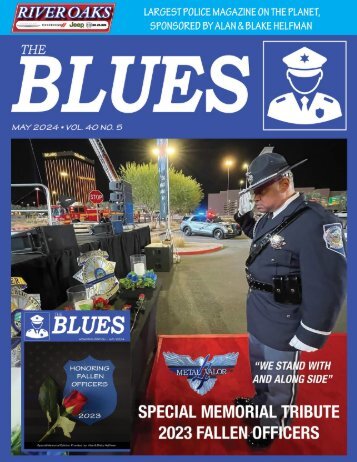
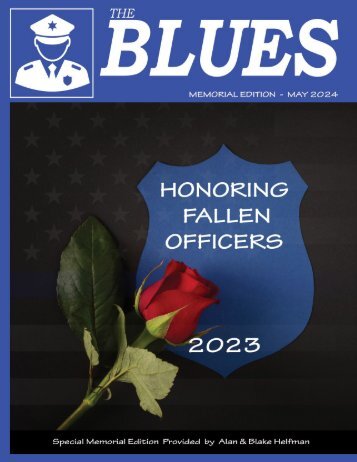



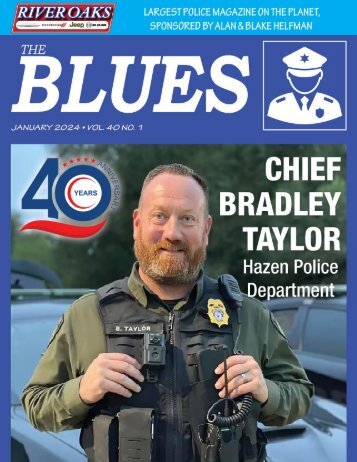




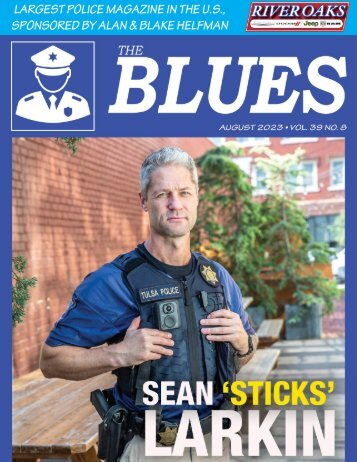


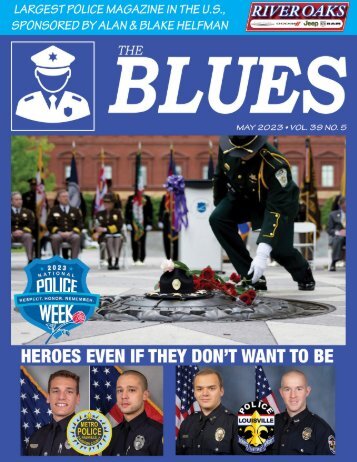
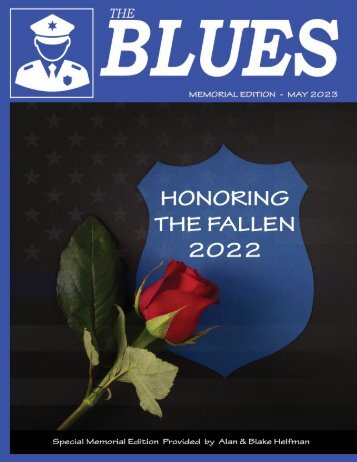
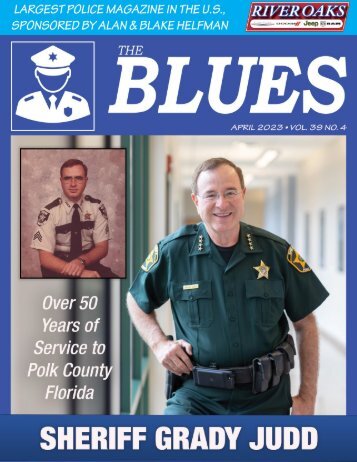
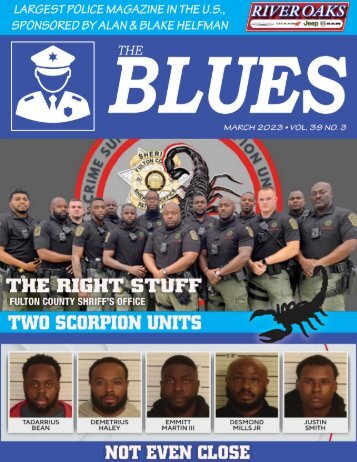
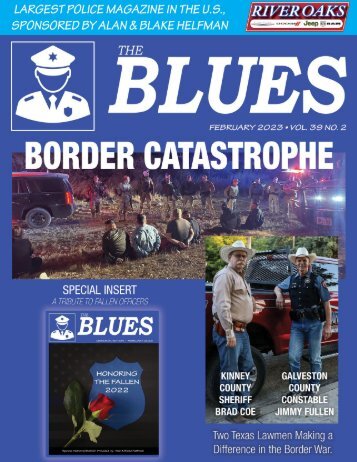
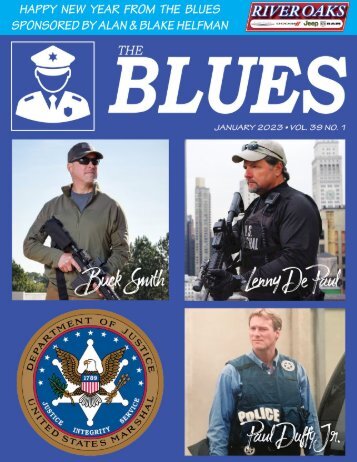



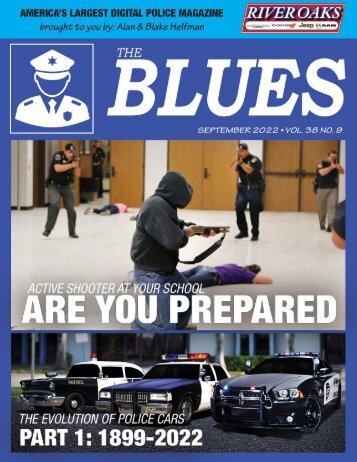
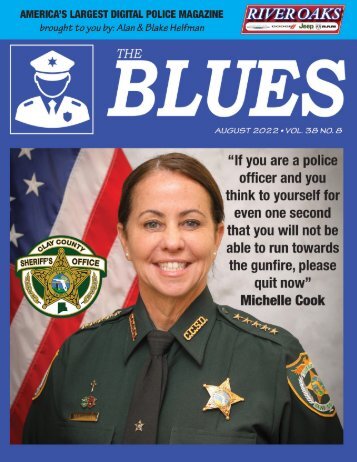

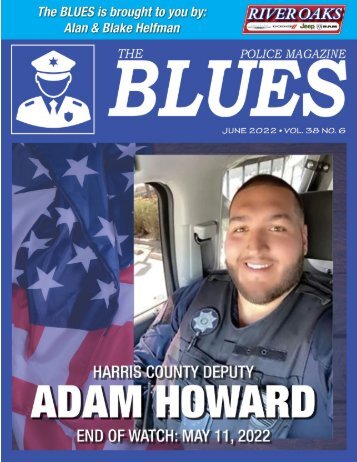

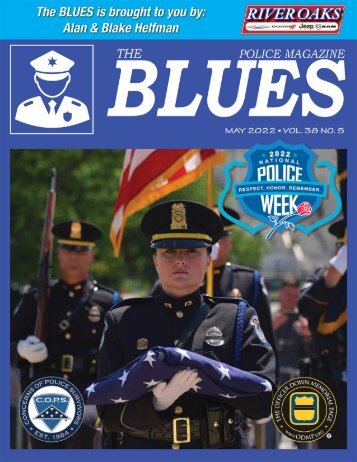
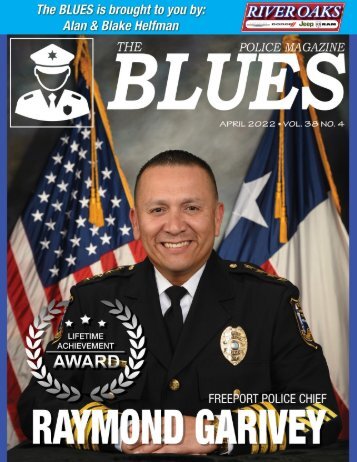
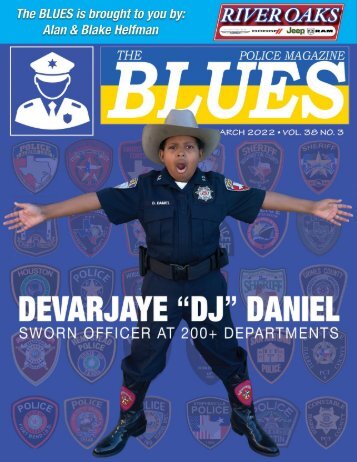
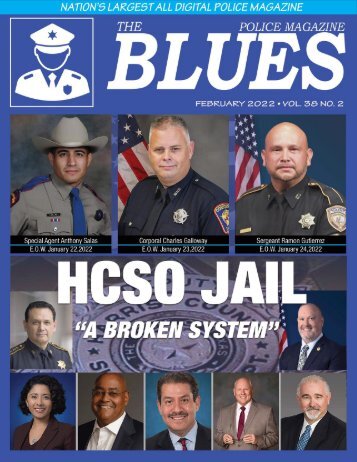
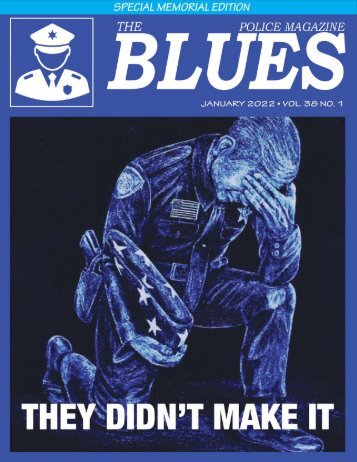


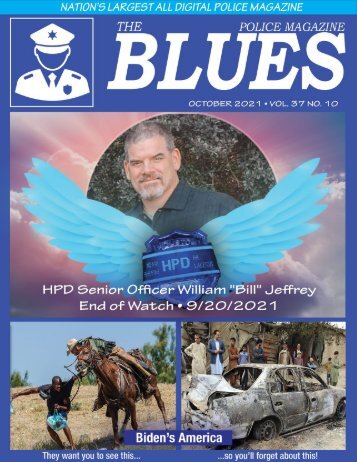
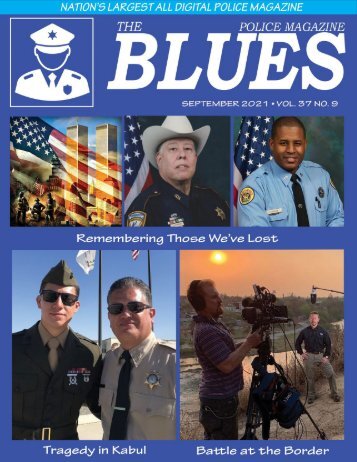



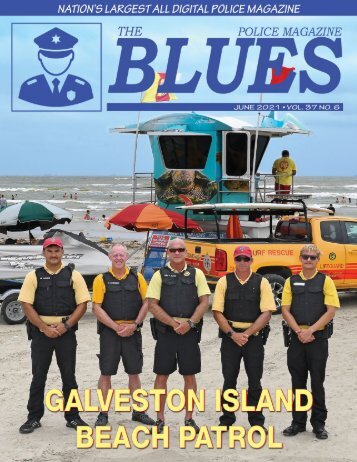

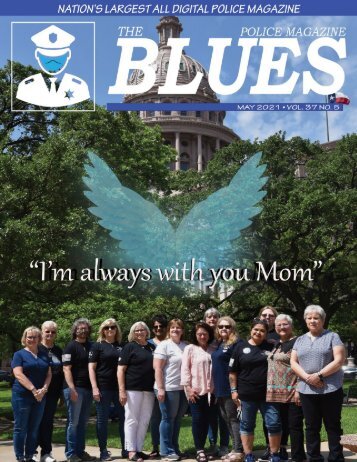


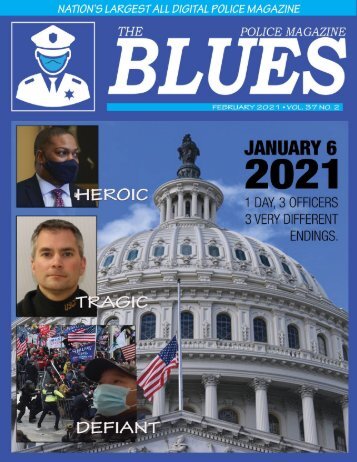


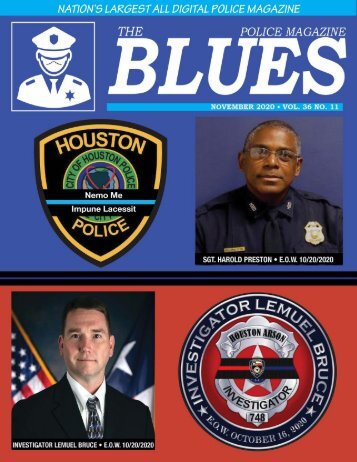
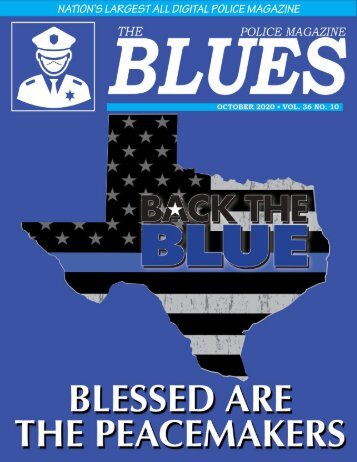


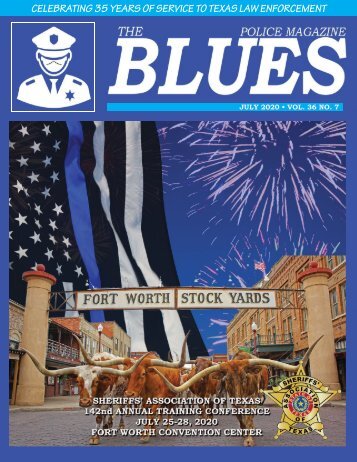
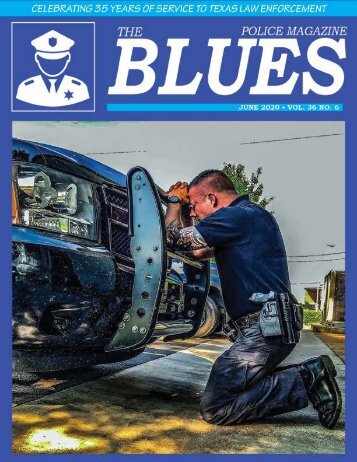
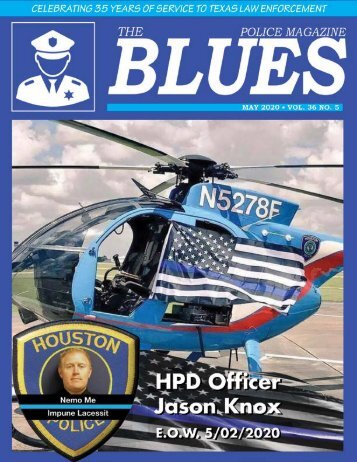
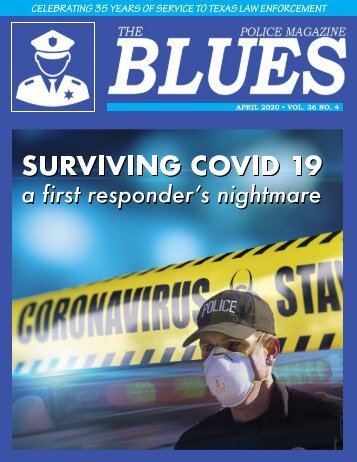



Follow Us
Facebook